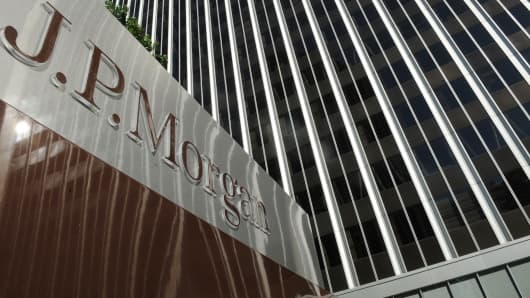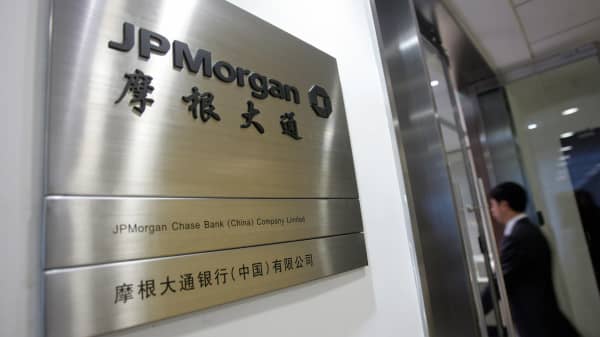(Read more: A bad day for Jamie Dimon just got a lot worse)
"The old argument that, gee, this is just business as usual—that's not a legitimate excuse for JPMorgan," said Chicago-based securities attorney Andrew Stoltmann. "Even if other companies are doing the same thing, JPMorgan still potentially may be liable."
Liable for exactly what, though, is the question.
After all, while it may be unethical, it's hardly illegal for financial institutions or funds to hire based on political or family connections. Doing so is practically standard operating procedure in China, and the entire global business community for that matter. (Chelsea Clinton, who was hired at $12 billion hedge fund Avenue Capital when she was 26, comes to mind.)
"It is not at all unusual for investment banks to hire well-connected people, including children of management of existing or potential clients, whether in China or in other countries," David Webb, a former investment banker and now an investor and analyst in Hong Kong, told the South China Morning Post.
The problem comes with intent.
(Read more: Fitch rings warningbell on Canadian banks)
"If there is an indirect kickback going on, for example, by paying a large bonus linked to the winning of business from the employee's father's company or the government, or even putting the child on the payroll without actually requiring him to work, then that could be corruption and should be investigated by the relevant authorities, including Hong Kong's ICAC if the offense took place here," Webb said.
The Post cited a handful of examples where well-heeled progeny landed plum spots with Chinese companies.
The specific cases the Securities and Exchange Commission is examining involve the daughter of a former railway official and the son of Tang Shuangning, a former regulator and now chairman of China Everbright Group. JPMorgan was one of a handful of banks looking to underwrite a planned capital rise by China Everbright.
While the case is potentially serious, it is still in the early stages; the SEC hasn't subpoenaed any actual documents but has only sent a request to JPMorgan to turn over information potentially relevant to the case.
But on a larger scale, this is only the most recent case of regulators training their sights on the top U.S. holding company by deposits, so suspicions of a witch hunt or fishing expedition are only natural.
The firm recently had two of its traders indicted in the "London Whale" case, in which the bank lost $6 billion on a bet that went awry.
(Read more: Two JPM workers charged in 'London whale' saga)
"The United States government has made it a priority to break this company," said Dick Bove, vice president of equity research at Rafferty Capital Markets. "In my view, it wants the firm broken up and it wants the management changed. Every action that it has taken in the past few years is oriented toward this goal."
Bove alleged that there are "eight U.S. government agencies seeking ways to harm" JPMorgan and purposely leaked confidential documents to the Times as part of the effort, in which he believes the press also has been complicit.
"The government and the press are out to break up JPMorgan Chase," he said. "Its shareholders have a stake in this attack. They need to be careful."
Thus far, investors have taken a cautious view on the assault against JPM. Shares were down about 2 percent as of midday Monday and are down about 7 percent over the past 30 days, a period that has been rough on all the big banks.
(Read more: Buffett thanks BofA's CEO for $5.3 billion profit)
With all of the coming actions, JPMorgan faces a $6.8 billion bill from future legal costs, above the level it has in reserves.
"It's the latest shot across the bow. Prosecutors are coming hard, regulators are coming hard," said Stoltmann, the securities lawyer.
"The SEC and regulators have come under blistering criticism for the lack of enforcement actions and criminal actions against bank and brokerage firm executives," he said. "So this seems to be the next best thing for regulators to do, which is look under every rock and see whether anything sticks."
—By CNBC's Jeff Cox. Follow him @JeffCoxCNBCcom on Twitter.





